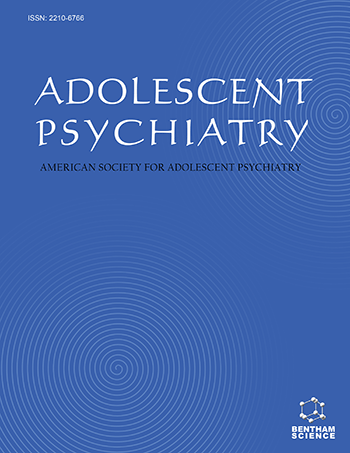Abstract
Until bright, creative, and alienated adolescents learn to make reasonable decisions, they will not engage in proactive, constructive, and creative change. Grounded in principles of reality therapy and choice theory, compassionate confrontation psychotherapy (CCP) stresses the concepts of conscious choice and acceptance of responsibility for ones actions. CCP provides a unique therapeutic experience to induce change. Viewed from this pragmatic and humanistic perspective, the overuse of psychiatric diagnoses and psychopharmacologic treatments inadvertently relieve gifted adolescents from accepting accountability for their choices. Evidence of the success of CCP can be found in the high percentage of alumni of the John Dewey Academy who are admitted to and complete their educations at leading colleges and graduate schools. Further evidence is provided by their academic performances at those institutions of higher learning.
Keywords: Adolescent psychotherapy, confrontation in psychotherapy, gifted adolescents, adolescent behavior disorders, CCP, alienated, Boarding School, Self-Destructive, Compassionate, gifted
Adolescent Psychiatry
Title: Compassionate Confrontation Psychotherapy: Working with Gifted but Self-Destructive Adolescents in a Therapeutic Boarding School
Volume: 1 Issue: 3
Author(s): Thomas Edward Bratter
Affiliation:
Keywords: Adolescent psychotherapy, confrontation in psychotherapy, gifted adolescents, adolescent behavior disorders, CCP, alienated, Boarding School, Self-Destructive, Compassionate, gifted
Abstract: Until bright, creative, and alienated adolescents learn to make reasonable decisions, they will not engage in proactive, constructive, and creative change. Grounded in principles of reality therapy and choice theory, compassionate confrontation psychotherapy (CCP) stresses the concepts of conscious choice and acceptance of responsibility for ones actions. CCP provides a unique therapeutic experience to induce change. Viewed from this pragmatic and humanistic perspective, the overuse of psychiatric diagnoses and psychopharmacologic treatments inadvertently relieve gifted adolescents from accepting accountability for their choices. Evidence of the success of CCP can be found in the high percentage of alumni of the John Dewey Academy who are admitted to and complete their educations at leading colleges and graduate schools. Further evidence is provided by their academic performances at those institutions of higher learning.
Export Options
About this article
Cite this article as:
Edward Bratter Thomas, Compassionate Confrontation Psychotherapy: Working with Gifted but Self-Destructive Adolescents in a Therapeutic Boarding School, Adolescent Psychiatry 2011; 1 (3) . https://dx.doi.org/10.2174/2210676611101030227
| DOI https://dx.doi.org/10.2174/2210676611101030227 |
Print ISSN 2210-6766 |
| Publisher Name Bentham Science Publisher |
Online ISSN 2210-6774 |
 19
19
- Author Guidelines
- Graphical Abstracts
- Fabricating and Stating False Information
- Research Misconduct
- Post Publication Discussions and Corrections
- Publishing Ethics and Rectitude
- Increase Visibility of Your Article
- Archiving Policies
- Peer Review Workflow
- Order Your Article Before Print
- Promote Your Article
- Manuscript Transfer Facility
- Editorial Policies
- Allegations from Whistleblowers
Related Articles
-
Impact of Religious Retreats on Disruptive Behaviors in Incarcerated Youth
Adolescent Psychiatry “Medical Clearance” of Psychiatric Patients in the Emergency Department
Adolescent Psychiatry Family Psychoeducation in Clinical High Risk and First-Episode Psychosis
Adolescent Psychiatry Problematic Internet Use: A Case of Social Media Addiction
Adolescent Psychiatry Treatment Outcome of Three Female Adolescents with Borderline Personality Disorder
Adolescent Psychiatry Opioid Use Disorders in Adolescents: A Review of Prevalence, Problems, Clinical Features and Treatment Options
Adolescent Psychiatry Clinical, Psychosocial and Family Characteristics of Suicide Attempts Among Greek Adolescents
Adolescent Psychiatry Perspectives on Female Adolescent Development and Psychopathology
Adolescent Psychiatry Evaluation of a Dramatic Writing Workshop in Youth With or Without Psychiatric Disorders
Adolescent Psychiatry Social Media Use among Adolescents: Benefits and Risks
Adolescent Psychiatry Mental Health Services for Minor Detainees at Guantanamo
Adolescent Psychiatry Cognitive Behavioral Therapy for Adolescents at Clinical High Risk for Psychosis
Adolescent Psychiatry New Pathways of Intervention for Adolescents at Clinical High Risk of Psychosis: Improving Meta-representation Skills and Strengthening Identity with Video-Confrontation Techniques
Adolescent Psychiatry Child and Adolescent Refugee Mental Health in Brazil: Literature Review and a Family Case Report
Adolescent Psychiatry The Use of A Psychodynamic Semi-Structured Personality Assessment Interview in School Settings
Adolescent Psychiatry Risk Factors for Youth Problematic Internet Use: A Cross-sectional Study
Adolescent Psychiatry Policy and Adolescent Tobacco Use Prevention
Adolescent Psychiatry Vampires and Vamps: The Use of a Popular Metaphor in the Psychodynamic Understanding of Adolescent Conflict
Adolescent Psychiatry Cannabis and Cognitive Systems in Adolescents
Adolescent Psychiatry Environmental Risk and Protective Factors and Their Influence on the Emergence of Psychosis
Adolescent Psychiatry

























